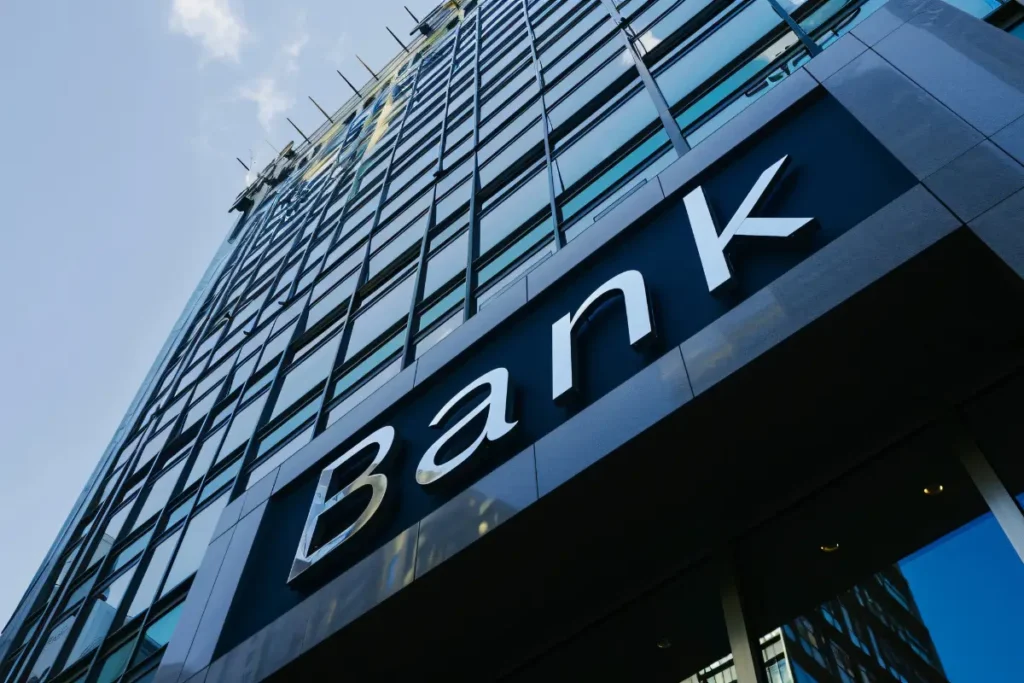Bullion Banking in Indonesia: A Legal Overview of the Emerging Industry

Indonesia has officially entered the bullion banking sector with PT Pegadaian (Persero) (“Pegadaian”) and PT Bank Syariah Indonesia Tbk (“BSI”) becoming the country’s first bullion banks, following approval from the Financial Services Authority (Otoritas Jasa Keuangan – “OJK”). This milestone enables regulated gold-related financial services, including deposits, financing, trading, and safekeeping. Governed by Law No. 4 of 2023 and OJK Regulation No. 17/2024, bullion banking establishes a structured legal framework, institutional requirements, and business activities. This article provides a comprehensive legal overview of bullion banking in Indonesia, outlining key regulatory aspects and implications for the financial sector.
In a historic move, Pegadaian and BSI have officially become Indonesia’s first generation bullion banks following the issuance of OJK Letter No. S-325/PL.02/2024 and OJK Letter No. S-53/PB.22/2025, which grant those company approval to engage in bullion business activities. According to Pegadaian’s official announcement through social media, the approval was obtained on December 23, 2024 while BSI obtained its approval on February 12, 2025.
The approvals mark a significant milestone for Indonesia’s financial sector, as bullion banking opens up new avenues for managing and trading precious metals, particularly gold. Following the breakthrough in gold-related transaction schemes, this article will primarily explore the legal framework, requirements and business activities for bullion banks under Indonesia’s current laws and regulations.
A. The Legal Framework
Bullion banking, as defined by Law No. 4 of 2023 on the Development and Strengthening of the Financial Sector, refers to business activities involving gold in various forms of business such as savings, financing, trading, deposits, and other services provided by financial services institutions. The law establishes a legal foundation for bullion-related services and is designed to encourage greater financial inclusion and provide a secure and regulated framework for gold transactions.The implementation of this business activity is further stipulated through OJK Regulation No. 17 of 2024 on Bullion Business Operations (“
POJK 17/2024”), which is effective starting from October 18, 2024. This regulation provides detailed guidelines on how bullion services should be conducted, including the licensing and integration of shariah principles where applicable.

Read More: Key Takeaways: Unlocking Fintech Potential in Indonesia
B. Institutional Requirements
Pursuant to POJK 17/2024, bullion business activities can only be conducted by financial services institutions (Lembaga Jasa Keuangan – “LJK”). Furthermore, any LJK seeking to engage in bullion business activities must meet several institutional requirements as stipulated in Chapter III of POJK 17/2024. Specifically, LJKs must fulfill the following three key requirements to operate as a bullion bank:
| Criteria
(Article 21)
|
|
| Capital Requirement (Article 22)
|
LJKs engaged solely in gold deposit activities are exempted from the core capital or equity requirements of Rp14 trillion. However, they must comply with the applicable core capital or equity requirements for LJK. |
| Institutional and Management Requirement
(Article 23) |
LJKs engaged in bullion banking must establish a Saturan Kerja Khusus (dedicated work unit) exclusively responsible for bullion-related activities. The special work unit (satuan kerja khusus – “SKK”) must operate independently and cannot be merged with or concurrently function as other work units. Additionally, the unit must be led by an official who reports directly to the director responsible for overseeing bullion business activities. |
C. Key Features of Bullion Business Activities
Pursuant to Article 2 of POJK 17/2024, bullion banks may engage in five key activities i.e., Gold Deposit, Gold Financing, Gold Trading, Gold Safekeeping and other activities. While Pegadaian currently conducts 4 of those activities, BSI currently has a permit to conduct two of the activities i.e., Gold Safekeeping and Gold Trading, and is still in the licensing process for Gold Financing and Gold Deposit.
Further explanation regarding those five activities are as follows:
-
- Gold Deposit (Simpanan Emas)
Pursuant to Article 1 number 2 of POJK 17/2024, Simpanan Emas refers to the activity to store standardized gold amounts entrusted by the public to a bullion bank based on an agreement of the parties.Gold deposited in a gold saving scheme is categorized as an unallocated account, allowing the bullion bank to utilize the gold as a source for gold financing disbursement and/or gold trading transactions. The terms, including the duration and fees, are subject to an agreement between the customer and the bullion bank. Additionally, bullion banks must comply with accounting standards for the management and reporting of gold deposits.Pegadaian offers this product under the name “Deposito Emas”, providing a secure investment option where gold is stored and managed by Pegadaian. In return, customers receive a return on investment in the form of gold (gramation). Deposito Emas is available under the following terms and conditions:Pegadaian – Deposit Emas Terms Details – PEGADAIAN Tenure Options 6 months, 9 months and 12 months Minimum Opening Balance 5 grams (in multiples of 1 gram) Minimum Remaining Balance 0.1 gram Return on Investment 1% per year Calculation = 1% x Gold Deposit balance × buyback price, converted into gold
Return Disbursement At the beginning of each month and on the maturity date Early Withdrawal Fee 0.05% of Gold Deposit balance × fair value
As of the publication date of this article, customers can apply for Deposito Emas services through the Pegadaian Digital App by first creating an account.
- Gold Financing (Pembiayaan Emas)
Under Article 7 to Article 11 of POJK 17/2024, bullion banks are authorized to provide gold financing. The gold used for such financing may be sourced from:- Gold saved (via gold savings transactions); and/or
- Gold owned by the bullion bank.
Additionally, POJK 17/2024 mandates that bullion banks secure collateral/security for the disbursement of gold financing. Specific collateral requirements vary based on the type of bullion bank, as outlined below:No Type of Bullion Bank Form of Security 1.
Conventional Commercial Banks, Sharia Commercial Banks and/or a Sharia Business Unit of a Conventional Commercial Bank cash or cash equivalent, time deposit, securities issued by the Government of the Republic of
Indonesia, and/or securities issued by Bank Indonesia.2.
Bullion Banks other than the above cash or cash equivalent, time deposit, inventory in the form of gold, securities issued by the
Government of the Republic of Indonesia and/or securities issued by Bank Indonesia.We note that, in practice, Pegadaian has provided gold working capital financing services to the public under the following terms and conditions:
Pegadaian – Gold Working Capital Financing No Terms Details/Requirements 1. Customer Business entities in the categories of gold manufacturing/production, distribution, and gold retail that have been operating for at least 3 years. 2. Facility Type Loans in the form of gold. 3. Repayment Lump sum payment made for the entirety of an outstanding loan amount, at maturity date (bullet payment). 4. Purpose To fulfill raw materials needed in the form of gold for production. 5. Delivery For loan disbursement, customers can choose a gold delivery mechanism (Self-Pickup/Courier). 6. Loan Tenure Working capital loans in the form of gold for a certain period, allowing for the fulfillment of gold raw materials needed for production. 7. Minimum Gold Weight per Transaction 500 grams (subject to market adjustments). 8. Interest Rate Up to 7% Note: May vary based on risk analysis.
9. Interest Payment Monthly installment payments of interest (in Rupiah) to the specified account number of Pegadaian. 10. Security Trade goods inventory.
According to verbal confirmation from Pegadaian, this type of gold financing can be accessed by customers through Pegadaian’s Relationship Manager. Customers can then negotiate the terms of the transaction directly with Pegadaian.
- Gold Trading (Perdagangan Emas)
Article 12 of POJK 17/2024 stipulates that gold trading by bullion banks must adhere to certain standards, which includes a minimum transaction weight of 500 grams, except when the trade is conducted for saving purposes, gold financing repayment, or deposit activities. Additionally, all gold trading must be carried out physically, and the transactions must be transparent and reported in accordance with applicable financial and legal regulations.Regarding the source of gold traded by bullion banks, the banks may use gold saved by customers in gold savings transactions and/or gold owned by the bullion banks.According to verbal confirmation from Pegadaian, the institution serves this type of gold trading, and customers can access this service through Pegadaian’s dedicated Relationship Manager.Additionally, BSI has launched three services to support gold trading transactions. First, BSI Digital Gold, which serves the activity of buying, selling, and depositing gold through BYOND by BSI. Second, BSI Gold, which offers the convenience of purchasing physical gold either in full or via installments at competitive prices. Third, BSI Gold ATM, which is still under development and will facilitate gold withdrawals at BSI’s centers and branches. However, as of the publication date of this article, the details of the gold trading transaction scheme are not yet available and will be updated on BSI’s official website.
- Titipan Emas (Gold Safekeeping)
LJKs involved in bullion banking that offers titipan emas are required to store and return gold in the same condition as when it was entrusted, and fulfill all other obligations as outlined in the gold deposit agreement as regulated under Article 14 of POJK 17/2024. The gold is classified under an allocated account, ensuring that the gold remains distinct and separately managed. Furthermore, LJKs must keep separate records for titipan emas activities in their accounting books to ensure transparency and accurate tracking.In the event of bankruptcy of a bullion bank, as determined by a legally binding court decision, the entrusted gold is treated differently from other assets. Specifically, the gold deposited by customers will not be included in the bankruptcy estate and must be returned to the customers in the same amount as when it was deposited. Additionally, LJKs are prohibited from using the deposited gold for financing or trading activities, which ensures that the gold remains safeguarded according to its intended purpose and is not exposed to business risks.Further, Pegadaian as a bullion bank offers two forms of titipan emas, as follows:- Corporate Gold Safekeeping Service (jasa titipan emas korporasi) For this service, customers shall be corporations, each represented by an individual holding a valid KTP, as stipulated in the company’s Articles of Association. Customers are responsible for paying the appraisal and storage fees based on the applicable terms and the selected period. Additionally, customers must sign an agreement with Pegadaian for the service.Service Details are as follows:
Terms Description Appraisal Fee IDR 500,000 per piece Initial Deposit Minimum deposit of 10 kg of gold Storage Fee Starting from IDR 500,000 per kg or based on the agreement with the customer Time Period 1 year (with the option to extend) - Physical Gold Safekeeping Service (jasa titipan emas fisik)In this service, the gold safekept by Pegadaian must have a minimum value of IDR 20 million. Additionally, customers are required to pay storage fees based on the selected period and sign an agreement with Pegadaian for the service provided, as outlined below:
Deposit Value 6-Month Storage Fee 12-Month Storage Fee IDR 20,000,000 to IDR 100,000,000 IDR 100,000 IDR 200,000 IDR 100,000,000 to IDR 500,000,000 IDR 300,000 IDR 600,000 > IDR 500,000,000 to Legal Lending Limit (Batas Maksimum Pemberian Kredit) IDR 500,000 IDR 1,000,000
On a seperate note, for BSI, as of the publication date of this article, there is no detailed information available regarding the services mentioned. However, BSI is required to offer these services and products within six months from the date of obtaining the license to operate as a bullion bank.
- Corporate Gold Safekeeping Service (jasa titipan emas korporasi) For this service, customers shall be corporations, each represented by an individual holding a valid KTP, as stipulated in the company’s Articles of Association. Customers are responsible for paying the appraisal and storage fees based on the applicable terms and the selected period. Additionally, customers must sign an agreement with Pegadaian for the service.Service Details are as follows:
- Other Activities undertaken by LJK Conducting Bullion Business Activities
To engage in other bullion business activities, LJKs in Indonesia must fulfill certain regulatory requirements to ensure that the activities are aligned with their business objectives and adhere to financial regulations. Firstly, pursuant to Article 18 paragraph (2) of POJK 17/2024, the proposed activities must be included in the LJK’s business plan, and the institution must have a minimum soundness assessment of composite rating (tingkat kesehatan minimum peringkat komposit) 2 (two) or classified as sound (sehat). These measures ensure that the institution is financially stable enough to manage the risks associated with bullion transactions. Additionally, a formal license application is required, accompanied by detailed documentation outlining the activity scheme, risk mitigation plans, business prospects, and the roles and obligations of parties involved.The application for engaging in bullion business activities must also include a draft agreement that defines the terms and conditions between all parties involved. It is crucial for bullion banks to demonstrate their adherence to the prudential principle, outlining how they will manage potential risks while ensuring transparency and clear legal structures in their operations. By fulfilling these regulatory requirements, LJKs can expand into bullion banking while maintaining financial soundness and minimizing risks.
- Gold Deposit (Simpanan Emas)

Read More: World Banking Crisis, Should Indonesia Be Alert?
D. Licensing of Bullion Bank
To obtain the license, the Board of Directors (BoD) must submit an application to OJK along with the following documents:
- Data of the head of the SKK that carries out bullion business activities, which include:
- KTP or passport;
- NPWP;
- curriculum vitae;
- proof of appointment as head of the SKK;
- an affidavit stating that the person concerned: a) has no non-performing credit/financing; b) has never been convicted of committing a crime within the last 5 (five) years based on a legally binding court decision; and c) has never been declared bankrupt or found guilty of causing a legal entity to be declared bankrupt within the last 5 (five) years based on a legally binding court decision; and
- copies of Temporary Residency Permit Card (Kartu Izin Tinggal Terbatas), Permanent Permit Card (Kartu Izin Tinggal Tetap), and a copy of a work permit from the authorized institution for the head of the SKK who is a foreign national.
- Bullion bank business plan; and
- Proof of risk management readiness and evidence of access to global market networks. Additionally, LJKs conducting bullion business activities must comply with all applicable sectoral laws and regulations.
***
Should you require guidance in navigating bullion transactions, or assistance with obtaining a bullion bank license, please do not hesitate to contact ADCO Law. We are here to provide expert support and ensure your continued success in Indonesia
***
About ADCO Law:
ADCO Law is a law firm that offers clients a wide range of integrated legal services, including commercial transactions and corporate disputes in a variety of industry sectors. Over the course of more than a decade, we have grown to understand our clients’ industries and businesses as well as the regulatory aspects. In dealing with business dynamics, we provide comprehensive, solid legal advice and solutions to minimize legal and business risks.
From Upstream to Downstream, We Understand Your Industry. In complex transactions and certain cases, we actively engage with financial, tax, and environmental specialists, accountants, and law firms from various jurisdictions to add value to our clients. Our strong relationships with Government agencies, regulators, associations, and industry stakeholders ensure that our firm has a holistic view of legal matters.
ADCO Law is a Proud Member of the Alliott Global Alliance (AGA) in Indonesia. Founded in 1979, AGA is one of the largest and fastest-growing global multidisciplinary alliances, with 215 member firms in 95 countries. As a law firm, we also believe in regeneration. To stay abreast of business changes and stay relevant, our formation of lawyers is comprised of the top graduates from Indonesian and international law schools.
Contact our Business Development team for further information:
Alvin Mediadi, Business Development Manager, Indonesia

